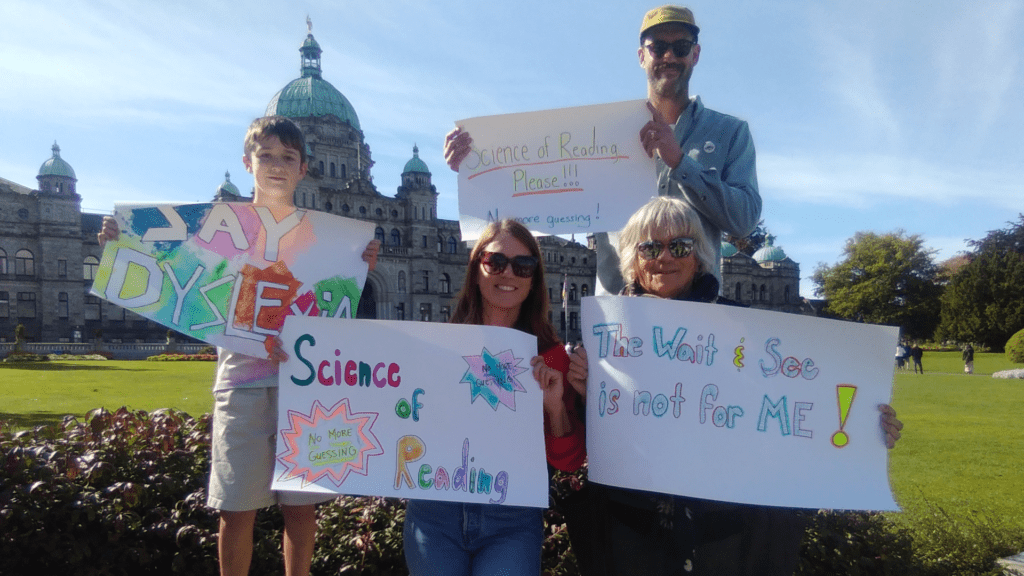As a hyperlexic person I would most likely be the worst teacher for dyslexic kids, so I did my homework and went to hear their plight from their own mouths—and that of their embattled parents.

About fifty people joined dyslexia advocates at the Legislative Assembly of British Columbia asking of the provincial government to support access to diagnostic and learning resources for children struggling to read.
Advocates, mostly parents but some school kids themselves, took the mic to express the realities experienced by those with learning difficulties pertaining to the written word. For starters, they described English as a language that is particularly difficult for dyslexic people to assimilate because of its irregular pronunciation, as opposed to Italian or Spanish which are pronounced exactly as spelled with very few irregularities. This may come as a surprise to people who’ve been told their language is rather easy to learn by foreigners, but even I have to admit, as a francophone, that it’s surprisingly easy to trip on words with odd or irregular spelling.
They also challenged the stereotype of dyslexic people, disabled as they are, being portrayed as slow or stupid. Most just learn differently. A strong link can be made between dyslexia and creativity, and also with right hemisphere dominance, which makes traditional teaching methods unfit for such neurodivergent minds. They need an updated curriculum which reflects these differences, and personalised education to address their difficulties.
Unfortunately, they are often met with a brick wall of incomprehension and derision. Educators have been described as gaslighting students and parents alike for their failure to overcome these hurdles. Pupils are reduced to hiding in order to avoid outright bullying, both by their peers and an education system that fosters it.
Even worse is the financial burden of having to navigate the system. Diagnosis alone costs about three thousand dollars, and that’s just the tip of the iceberg. In severe cases, the costs associated with tutoring or homeschooling can exceed one hundred thousand dollars. Considering this is a condition that plagues about twenty percent of students, for a service that is meant to be universal, many advocates blame the problem on an inadequate curriculum, plain and simple. They call on teachers to do some homework of their own by learning structured literacy, a methodology tailored for the needs of those who cannot follow the script.
And they call on the government to assist families in accessing the care they need to overcome their disability. One speaker highlighted the fact dyslexia was prevalent in two social groups: entrepreneurs, and prisoners. Which path school kids follow in life may well depend on how the education system addresses learning difficulties early in life, such that they end up celebrated on Forbes rather than having their mug shots displayed in tabloid newspapers.
Effective immediately, I quit all activism and advocacy. This is Rulebreakers' last post. I quit 1 Million Voices For Inclusion,…
I never imagined I would be writing this article. It might actually be my last. Read well before I finally…
I'm still incredulous at how little outrage, or even exposure, Councillor Jeremy Caradonna's appeal for the military to round up…
I've obtained proof via Freedom of Information requests that the City of Victoria took decisions to tackle the homelessness crisis…
Today I held an informal gathering for unhoused residents of Pandora Avenue here in downtown Victoria. Come read how it…
115 protesters gathered at the Legislative Assembly of British Columbia in Victoria, for the sixty-eighth weekend in a row, marching…